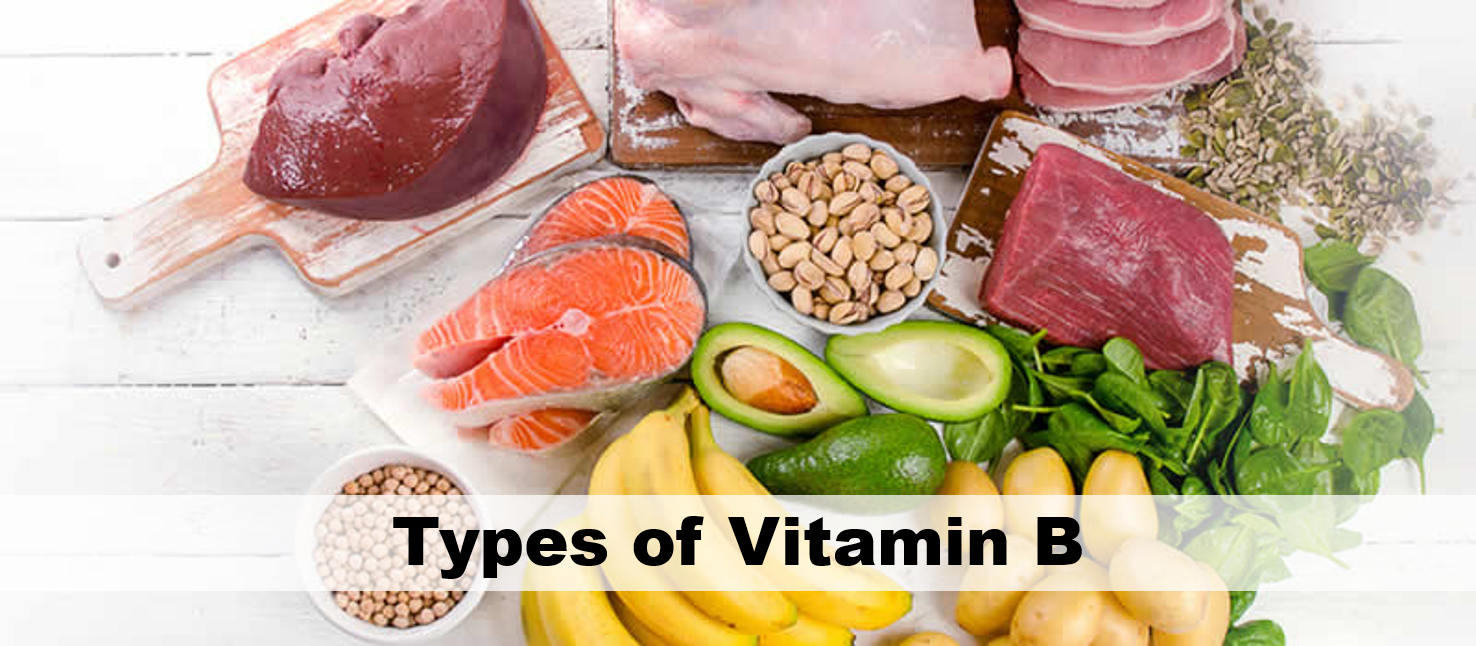Types of Vitamin B

Vitamin B and Types. Vitamin B is the general name of the water-soluble vitamin group. It is divided into different groups such as B12, B9, B1. All varieties have different functions in our bodies. They are present in sufficient amounts in many foods. Therefore, people who are fed a balanced and healthy diet does not have any vitamin B deficiency. However, factors such as age, pregnancy, medication, alcohol use, gender may cause the person to need more vitamin B. Vitamin B deficiency may have different symptoms such as weakness, weakness, fatigue, forgetfulness. In this case, vitamin deficiency can be removed by taking vitamin B complexes recommended by the doctor. We will talk about the types of vitamin B in the following text.
What is Vitamin B?

Vitamin B groups play a vital role in maintaining a healthy and peaceful life. They are responsible for the health of our cell and brain functions. They protect us against cardiovascular health problems. It increases muscle strength in men and helps muscle buildings. Especially women should consume sufficient amounts of vitamin B. Vitamin B supplements consumed by women alleviate nausea, increase energy and reduce the risk of preeclampsia.
Benefits of vitamin B
The common task of all B vitamins is to help the nutrients which are we consume to be converted into energy by our body. There are a total of 8 basic B vitamins, B1, B2, B3, B5, B6, B7, B9, B12. Lack of any of the B vitamins can cause serious health problems. Symptoms may vary depending on the type of vitamin B that is missing. The patient may experience different symptoms such as fatigue, confusion, anemia, and forgetfulness.
Types of vitamin B and Folic Acid
Folic acid also called vitamin B9; It is an important vitamin involved in DNA synthesis and cell division. This vitamin reduces stiffness, minimizes the risk of heart attack, stroke, and stroke. It is mostly found in green leafy vegetables. It was discovered in 1941 in spinach leaves. Folic acid also plays a role in the development of the nervous system of the fetus. In case of deficiency, the cells are not sufficiently divided. Folic acid deficiency in pregnant women may cause many congenital anomalies.
Vitamin B1
Vitamin B1 (thiamine) allows the body to use carbohydrates as energy. It is essential for glucose metabolism and plays an important role in nerve, muscle, and heart function. Vitamin B1, like all vitamins of the B complex, is a water-soluble vitamin. It helps prevent complications in the nervous system, brain, muscle, heart, stomach, and intestines. It also plays a role in the mixing of electrolytes into and out of muscle and nerve cells.
Vitamin B2
Vitamin B2 (riboflavin) contributes to the conversion of food into energy. It also acts as an antioxidant and purifies the body from toxins. Vitamin B2 is a water-soluble vitamin and, like any water-soluble vitamin, is carried in the bloodstream and the unneeded part is excreted in the urine. Vitamin B2 must be consumed every day because this vitamin can store only small amounts in the body and quickly throws out.
Vitamin B3
Vitamin B3 (niacin) is an important nutrient that we need for every part of our body to function properly. In particular, there are studies that Vitamin B3 increases the level of good cholesterol (HDL) and reduce bad cholesterol. It also helps prevent a second heart attack in people who faced a heart attack before. It also reduces the risk of atherosclerosis and arteriosclerosis.
Coronavirus Causes and Symptoms
Vitamins B6 and B7
B6 (pyridoxine) is involved in red blood cell production, neurotransmitter production, and amino acid metabolism. It also allows the baby’s brain development. It should, therefore, be taken in sufficient amounts by women. Vitamin B7 (biotin), which regulates gene expression, is essential for fat and carbohydrate metabolism. Folic acid and vitamin B12 have many positive contributions to our health.
Vitamin B9
Vitamin B9 is divided into folate and folic acid. Folate is naturally present in foods, while folic acid is the synthetic form that is present in most processed or fortified foods. Promotes the growth of red blood cells. When taken in sufficient amounts by women, it significantly reduces the risk of birth defects in the baby. It promotes the growth of red blood cells.





